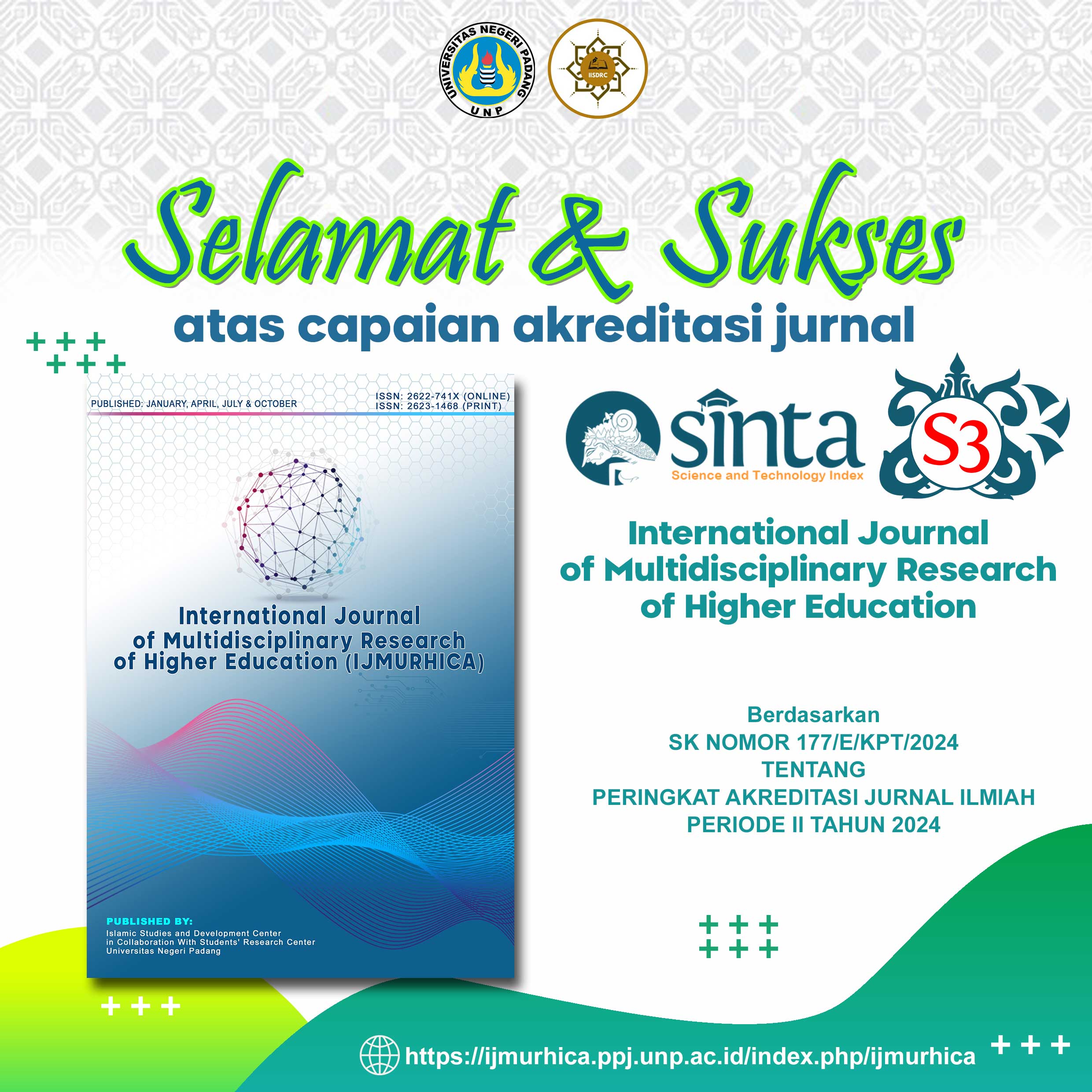Analysis of the Concept and Implementation of Human Rights in Islamic History
DOI:
https://doi.org/10.24036/ijmurhica.v8i4.267Keywords:
Human rights, Islam, global harmonization, Islamic historyAbstract
This article provides an in-depth analysis of the concept and implementation of human rights in Islamic history, highlighting how the fundamental principles contained in Islamic teachings have contributed to the development of universal ideas about human rights. This study uses a qualitative method with a content analysis approach, where data sources are obtained from normative theories, expert opinions, and relevant previous research findings. All data were analyzed thematically using Miles and Huberman's technique to find patterns, categories, and consistent meanings in the text. This study traces the historical roots of the concept of human rights in Islam, the development of classical and contemporary scholars' thinking, and highlights the implementation of these values in social, political, and legal practices throughout various periods of Islamic history. The results of the study show that Islam has a conceptual framework that emphasizes justice, equality, protection of human dignity, and social responsibility in line with modern human rights principles. In addition, this article asserts that the understanding and application of human rights from an Islamic perspective can be an important foundation for global harmony, particularly in efforts to build a more inclusive cross-cultural and interfaith dialogue. Thus, this study not only contributes academically to the study of human rights in Islam, but also offers an alternative perspective that is relevant to the strengthening of universal human values in the contemporary era.
Downloads
Downloads
Published
How to Cite
Issue
Section
License
Copyright (c) 2025 Norman Ohira, Ahmad Yani, Ramadani Ramadani

This work is licensed under a Creative Commons Attribution-ShareAlike 4.0 International License.






